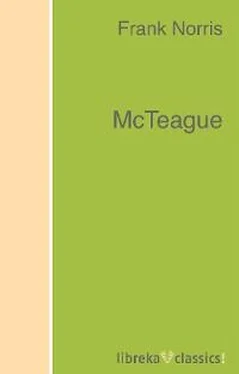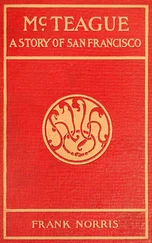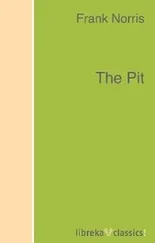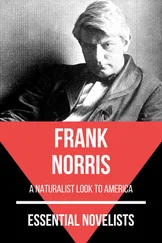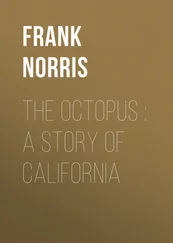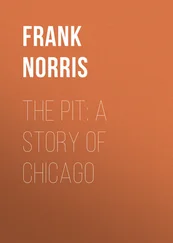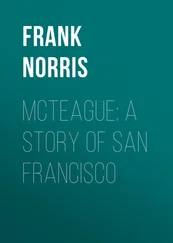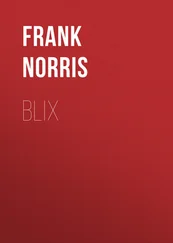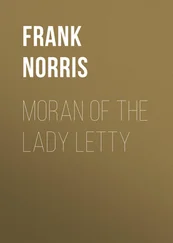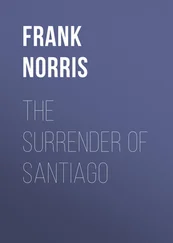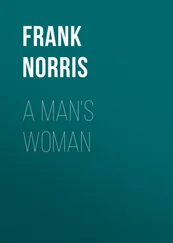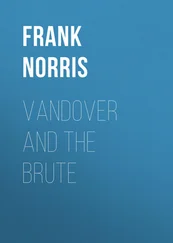Frank Norris - McTeague
Здесь есть возможность читать онлайн «Frank Norris - McTeague» — ознакомительный отрывок электронной книги совершенно бесплатно, а после прочтения отрывка купить полную версию. В некоторых случаях можно слушать аудио, скачать через торрент в формате fb2 и присутствует краткое содержание. Жанр: unrecognised, на английском языке. Описание произведения, (предисловие) а так же отзывы посетителей доступны на портале библиотеки ЛибКат.
- Название:McTeague
- Автор:
- Жанр:
- Год:неизвестен
- ISBN:нет данных
- Рейтинг книги:5 / 5. Голосов: 1
-
Избранное:Добавить в избранное
- Отзывы:
-
Ваша оценка:
- 100
- 1
- 2
- 3
- 4
- 5
McTeague: краткое содержание, описание и аннотация
Предлагаем к чтению аннотацию, описание, краткое содержание или предисловие (зависит от того, что написал сам автор книги «McTeague»). Если вы не нашли необходимую информацию о книге — напишите в комментариях, мы постараемся отыскать её.
libreka classics – These are classics of literary history, reissued and made available to a wide audience.
Immerse yourself in well-known and popular titles!
McTeague — читать онлайн ознакомительный отрывок
Ниже представлен текст книги, разбитый по страницам. Система сохранения места последней прочитанной страницы, позволяет с удобством читать онлайн бесплатно книгу «McTeague», без необходимости каждый раз заново искать на чём Вы остановились. Поставьте закладку, и сможете в любой момент перейти на страницу, на которой закончили чтение.
Интервал:
Закладка:
Maria found Zerkow himself in the back room, cooking some sort of a meal over an alcohol stove. Zerkow was a Polish Jew—curiously enough his hair was fiery red. He was a dry, shrivelled old man of sixty odd. He had the thin, eager, cat-like lips of the covetous; eyes that had grown keen as those of a lynx from long searching amidst muck and debris; and claw-like, prehensile fingers—the fingers of a man who accumulates, but never disburses. It was impossible to look at Zerkow and not know instantly that greed—inordinate, insatiable greed—was the dominant passion of the man. He was the Man with the Rake, groping hourly in the muck-heap of the city for gold, for gold, for gold. It was his dream, his passion; at every instant he seemed to feel the generous solid weight of the crude fat metal in his palms. The glint of it was constantly in his eyes; the jangle of it sang forever in his ears as the jangling of cymbals.
"Who is it? Who is it?" exclaimed Zerkow, as he heard Maria's footsteps in the outer room. His voice was faint, husky, reduced almost to a whisper by his prolonged habit of street crying.
"Oh, it's you again, is it?" he added, peering through the gloom of the shop. "Let's see; you've been here before, ain't you? You're the Mexican woman from Polk Street. Macapa's your name, hey?"
Maria nodded. "Had a flying squirrel an' let him go," she muttered, absently. Zerkow was puzzled; he looked at her sharply for a moment, then dismissed the matter with a movement of his head.
"Well, what you got for me?" he said. He left his supper to grow cold, absorbed at once in the affair.
Then a long wrangle began. Every bit of junk in Maria's pillow-case was discussed and weighed and disputed. They clamored into each other's faces over Old Grannis's cracked pitcher, over Miss Baker's silk gaiters, over Marcus Schouler's whiskey flasks, reaching the climax of disagreement when it came to McTeague's instruments.
"Ah, no, no!" shouted Maria. "Fifteen cents for the lot! I might as well make you a Christmas present! Besides, I got some gold fillings off him; look at um."
Zerkow drew a quick breath as the three pellets suddenly flashed in Maria's palm. There it was, the virgin metal, the pure, unalloyed ore, his dream, his consuming desire. His fingers twitched and hooked themselves into his palms, his thin lips drew tight across his teeth.
"Ah, you got some gold," he muttered, reaching for it.
Maria shut her fist over the pellets. "The gold goes with the others," she declared. "You'll gi' me a fair price for the lot, or I'll take um back."
In the end a bargain was struck that satisfied Maria. Zerkow was not one who would let gold go out of his house. He counted out to her the price of all her junk, grudging each piece of money as if it had been the blood of his veins. The affair was concluded.
But Zerkow still had something to say. As Maria folded up the pillow-case and rose to go, the old Jew said:
"Well, see here a minute, we'll—you'll have a drink before you go, won't you? Just to show that it's all right between us." Maria sat down again.
"Yes, I guess I'll have a drink," she answered.
Zerkow took down a whiskey bottle and a red glass tumbler with a broken base from a cupboard on the wall. The two drank together, Zerkow from the bottle, Maria from the broken tumbler. They wiped their lips slowly, drawing breath again. There was a moment's silence.
"Say," said Zerkow at last, "how about those gold dishes you told me about the last time you were here?"
"What gold dishes?" inquired Maria, puzzled.
"Ah, you know," returned the other. "The plate your father owned in Central America a long time ago. Don't you know, it rang like so many bells? Red gold, you know, like oranges?"
"Ah," said Maria, putting her chin in the air as if she knew a long story about that if she had a mind to tell it. "Ah, yes, that gold service."
"Tell us about it again," said Zerkow, his bloodless lower lip moving against the upper, his claw-like fingers feeling about his mouth and chin. "Tell us about it; go on."
He was breathing short, his limbs trembled a little. It was as if some hungry beast of prey had scented a quarry. Maria still refused, putting up her head, insisting that she had to be going.
"Let's have it," insisted the Jew. "Take another drink." Maria took another swallow of the whiskey. "Now, go on," repeated Zerkow; "let's have the story." Maria squared her elbows on the deal table, looking straight in front of her with eyes that saw nothing.
"Well, it was this way," she began. "It was when I was little. My folks must have been rich, oh, rich into the millions—coffee, I guess—and there was a large house, but I can only remember the plate. Oh, that service of plate! It was wonderful. There were more than a hundred pieces, and every one of them gold. You should have seen the sight when the leather trunk was opened. It fair dazzled your eyes. It was a yellow blaze like a fire, like a sunset; such a glory, all piled up together, one piece over the other. Why, if the room was dark you'd think you could see just the same with all that glitter there. There wa'n't a piece that was so much as scratched; every one was like a mirror, smooth and bright, just like a little pool when the sun shines into it. There was dinner dishes and soup tureens and pitchers; and great, big platters as long as that and wide too; and cream-jugs and bowls with carved handles, all vines and things; and drinking mugs, every one a different shape; and dishes for gravy and sauces; and then a great, big punch-bowl with a ladle, and the bowl was all carved out with figures and bunches of grapes. Why, just only that punch-bowl was worth a fortune, I guess. When all that plate was set out on a table, it was a sight for a king to look at. Such a service as that was! Each piece was heavy, oh, so heavy! and thick, you know; thick, fat gold, nothing but gold—red, shining, pure gold, orange red—and when you struck it with your knuckle, ah, you should have heard! No church bell ever rang sweeter or clearer. It was soft gold, too; you could bite into it, and leave the dent of your teeth. Oh, that gold plate! I can see it just as plain—solid, solid, heavy, rich, pure gold; nothing but gold, gold, heaps and heaps of it. What a service that was!"
Maria paused, shaking her head, thinking over the vanished splendor. Illiterate enough, unimaginative enough on all other subjects, her distorted wits called up this picture with marvellous distinctness. It was plain she saw the plate clearly. Her description was accurate, was almost eloquent.
Did that wonderful service of gold plate ever exist outside of her diseased imagination? Was Maria actually remembering some reality of a childhood of barbaric luxury? Were her parents at one time possessed of an incalculable fortune derived from some Central American coffee plantation, a fortune long since confiscated by armies of insurrectionists, or squandered in the support of revolutionary governments?
It was not impossible. Of Maria Macapa's past prior to the time of her appearance at the "flat" absolutely nothing could be learned. She suddenly appeared from the unknown, a strange woman of a mixed race, sane on all subjects but that of the famous service of gold plate; but unusual, complex, mysterious, even at her best.
But what misery Zerkow endured as he listened to her tale! For he chose to believe it, forced himself to believe it, lashed and harassed by a pitiless greed that checked at no tale of treasure, however preposterous. The story ravished him with delight. He was near someone who had possessed this wealth. He saw someone who had seen this pile of gold. He seemed near it; it was there, somewhere close by, under his eyes, under his fingers; it was red, gleaming, ponderous. He gazed about him wildly; nothing, nothing but the sordid junk shop and the rust-corroded tins. What exasperation, what positive misery, to be so near to it and yet to know that it was irrevocably, irretrievably lost! A spasm of anguish passed through him. He gnawed at his bloodless lips, at the hopelessness of it, the rage, the fury of it.
Читать дальшеИнтервал:
Закладка:
Похожие книги на «McTeague»
Представляем Вашему вниманию похожие книги на «McTeague» списком для выбора. Мы отобрали схожую по названию и смыслу литературу в надежде предоставить читателям больше вариантов отыскать новые, интересные, ещё непрочитанные произведения.
Обсуждение, отзывы о книге «McTeague» и просто собственные мнения читателей. Оставьте ваши комментарии, напишите, что Вы думаете о произведении, его смысле или главных героях. Укажите что конкретно понравилось, а что нет, и почему Вы так считаете.
